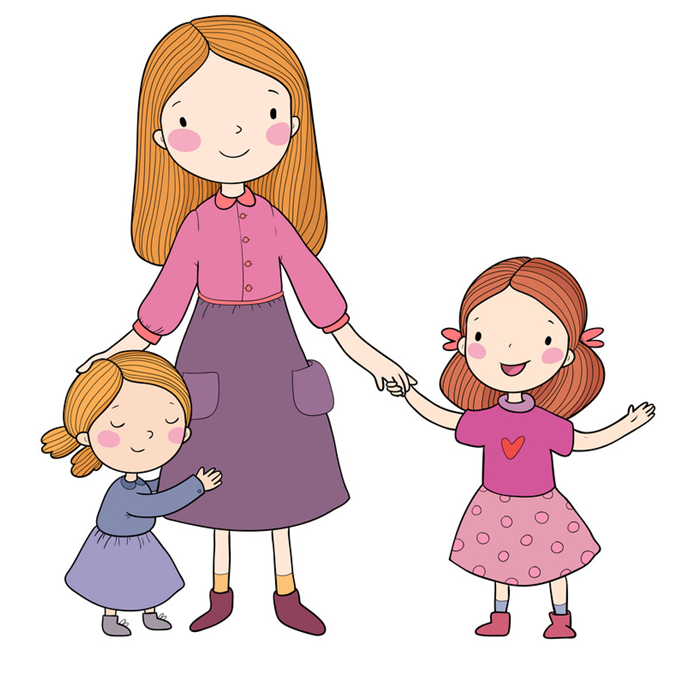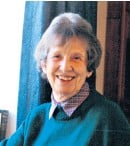- Books Name
- (English) Hornbill & Snapshot Class-11
- Publication
- PathSet Publications
- Course
- CBSE Class 11
- Subject
- English
A photograph
by Shirely Toulsan
The poem deals with the shortness of human life pitched against the permanence of Nature. The speaker sees the photograph of her mother at a seaside holiday with her Two cousins. The mother is only twelve years old at the time and now she has been dead for twelve years. The finality of death makes the feeling of loss acute and there is a terrible silence, which speaks for itself.
A Photograph Poem Explanation
Line 1 – 4:
The cardboard shows me how it was
When the two girl cousins went paddling,
Each one holding one of my mother’s hand

And she the big girl — some twelve years or so
Paddling – walking
In these lines, the poet is looking at an old photo album which is made up of cardboard. In the picture, there are three girls who are walking on the beach holding each other’s hands. The girl in the middle is the tallest and oldest, the other two girls on each side are younger than her. The girl in the middle is the poet’s mother. She is around twelve years old when the picture was taken.
Line 5 – 9:
All three stood still to smile through their hair
At the uncle with the camera. A sweet face,
My mother’s, that was before I was born.
And the sea, which appears to have changed less,
Washed their terribly transient feet
Transient – short-term; temporary

In the above lines, the poet describes how the photograph was taken. Her mother’s uncle took the photograph and told them to stop and pose. All three of them left their wet hair open and smiled at the camera. The poet’s attention is drawn towards his mother’s face which is described as a ‘sweet face’. The photograph was taken long before the poet was born. The poet calls their feet ‘terrible transient’ as they were so young by then and now they had grown older. On the other hand, the sea which touched their feet has changed less.
Line 10 – 13:
Some twenty-thirty — years later
She’d laugh at the snapshot.
“See Betty And Dolly,” she’d say, “and look how they
Dressed us for the beach.” The sea holiday
Snapshot – photograph
After twenty-thirty years later, she would laugh at the photograph. She would tell me to look at her cousins, Betty and Dolly and how their parents would dress all three of them up for the beach. They would have planned to take a photograph beforehand.
Line 14 – 15:
Was her past, mine is her laughter. Both wry
With the laboured ease of loss.
Wry – ironic; mocking
The poet recalls the sea holiday was her mother’s favourite moment from the past. While the poet’s favourite moment from the past was her mother’s laughter. Both the women would think about those past memories which they cannot live again. They tried their best to adjust to what they lost.
Line 16 – 19:
Now she’s been dead nearly as many years
As that girl lived. And of this circumstance
There is nothing to say at all.
Its silence silences.
Silences – a complete absence of sound
In the above lines, the poet says that her mother died twelve years ago, the same age her mother was in the photograph. Whenever the poet thinks of her mother’s death, she cannot explain what effect she has of her mother’s death. Death has silenced her mother which has also left her speechless.
A Photograph Literary Devices
Alliteration – repetition of a consonant sound at the beginning of two or more consecutive words. The instances of alliteration in the poem are as follows-
Stood still
Through their
My mother’s
Terribly transient
Silence silences
Oxymoron – a term which contradicts itself
Laboured ease
Epithet – a phrase expressing a quality of a person or something
Terribly transient
Poem-1
A Photograph
By Shirley Toulson

A Photograph Poem Introduction
Shirley Toulson wrote the poem 'A Photograph.' In this poem, she remembers her mother and her memories while looking at a childhood photograph of her mother when she was about twelve years old. She died twelve years ago, and she is unable to express her grief over her mother's death.
A Photograph Poem Summary
The poem pays tribute to the poet's mother. She is looking at an old photograph of her mother with a cardboard frame. The picture depicts three girls, the oldest and tallest of whom is in the middle. It's her mother when she was about twelve years old. Betty and Dolly, her two cousins on both sides, are holding her hands and are younger than her. On a beach vacation, they went paddling. The photograph was taken at that time by her uncle. The poet couldn't help but notice her mother's lovely expression. The sea touched her terribly transient feet, symbolising how she changed over time while the sea remained the same.
Her mother would laugh at the photograph after twenty-thirty years. She'd make the poet look at the photo and tell her how their parents would dress them for a beach vacation. Her mother's favourite past memory was a beach vacation, while the poet's favourite memory was her laugh. They both lost something they cherished and will never be able to relive that moment. Those moments were now only memories. Now, the poet's mother had been dead for twelve years, which was the same age she was when the photograph was taken. She is unable to express her grief over her mother's absence.
A Photograph poem Explanation
The cardboard shows me how it was
When the two girl cousins went paddling,
Each one holding one of my mother’s hands,
And she the big girl — some twelve years or so
- Paddling – walking
The poet is looking at an old photo album made of cardboard in these lines. Three girls are walking on the beach holding each other's hands in the photo. The girl in the centre is the tallest and oldest, while the two girls on either side are younger. The poet's mother is the girl in the middle. She was about twelve years old at the time the photograph was taken.
All three stood still to smile through their hair
At the uncle with the camera. A sweet face,
My mother’s, that was before I was born.
And the sea, which appears to have changed less,
Washed their terribly transient feet
- Transient – short-term; temporary
The poet describes how the photograph was taken in the preceding lines. Her mother's uncle took the picture and told them to stop and pose. They all smiled at the camera while leaving their wet hair open. The poet's gaze is drawn to his mother's face, which is described as having a "sweet face." The photo was taken many years before the poet was born. The poet refers to their feet as 'terrible transient' because they were so young at the time and had now grown older. The sea that touched their feet, on the other hand, has changed less.
Some twenty-thirty — years later
She’d laugh at the snapshot.
“See Betty And Dolly,” she’d say, “and look how they
Dressed us for the beach.” The sea holiday
- Snapshot – photograph
She would laugh at the photograph after twenty-thirty years. She would point to her cousins, Betty and Dolly, and how their parents would dress all three of them up for the beach. They would have planned beforehand to take a photograph.
Was her past, mine is her laughter. Both wry
With the laboured ease of loss.
- Wry – ironic; mocking
The poet recalls her mother's favourite memory from the past as a sea vacation. While the poet's favourite memory is of her mother's laughter. Both women would reflect on past memories that they would never be able to relive. They did their best to compensate for what they had lost.
Now she’s been dead nearly as many years
As that girl lived. And of this circumstance
There is nothing to say at all.
Its silence silences.
- Silences – a complete absence of sound
The poet states in the preceding lines that her mother died twelve years ago, the same age her mother was in the photograph. When the poet thinks of her mother's death, she is unable to explain the impact it has on her. Death has silenced her mother, leaving her speechless.
A Photograph poem Literary Devices
1. Alliteration – repetition of a consonant sound at the beginning of two or more consecutive words. The instances of alliteration in the poem are as follows-
Stood still
Through their
My mother’s
Terribly transient
Silence silences
2. Oxymoron – a term which contradicts itself
Laboured ease
3. Epithet – a phrase expressing a quality of a person or something
Terribly transient
About the Poet

Kathleen Shirley Toulson ( Dixon; 20 May 1924 – 23 September 2018) was a writer, poet, journalist, and local politician from England. During WWII, Toulson attended Prior's Field School and served with the Auxiliary Territorial Service. In 1944, she married army lieutenant Norman Toulson; they divorced in 1951. She went on to study English at Birkbeck, University of London, and work at Foyles before becoming a journalist. She married poet Alan Brownjohn in 1960; they divorced in 1969.

 PathSet Publications
PathSet Publications
 ACERISE INDIA
ACERISE INDIA
